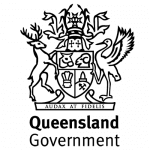Around The Web
EU Market: EUAs back above €20 for the first time in 10 years
Colombian activists face 'extermination' by criminal gangs
Nearly two years after the signing of a historic peace agreement, violence in the country continues
Enrique Fernández cannot remember the last night he slept peacefully.
He is tall and heavyset, and does not look like someone who scares easily, but as he sits in his humble rented home in western Colombia, his eyes dart nervously from left to right, scanning for any threat.
Continue reading...Aeolus: How a satellite will measure wind across Earth
Europe to ban halogen lightbulbs
After nearly 60 years of lighting homes halogens will be replaced with more energy efficient LEDs
After nearly 60 years of brightening our homes and streets, halogen lightbulbs will finally be banned across Europe on 1 September.
The lights will dim gradually for halogen. Remaining stocks may still be sold, and capsules, linear and low voltage incandescents used in oven lights will be exempted. But a continent-wide switchover to light-emitting diodes (LEDs) is underway that will slash emissions and energy bills, according to industry, campaigners and experts.
Continue reading...Queensland pumps money into $2 billion battery “gigafactory” study
 Queensland government to provide up to $3.1m for feasibility study into proposed $2bn lithium-ion battery "giga-factory" in Townsville.
Queensland government to provide up to $3.1m for feasibility study into proposed $2bn lithium-ion battery "giga-factory" in Townsville.
The post Queensland pumps money into $2 billion battery “gigafactory” study appeared first on RenewEconomy.
Queensland government tenders for battery storage inspection company
 Safety systems are being set up ahead of a scheme to help Queensland families install home batteries to store their solar energy and take control of their power bills.
Safety systems are being set up ahead of a scheme to help Queensland families install home batteries to store their solar energy and take control of their power bills.
The post Queensland government tenders for battery storage inspection company appeared first on RenewEconomy.
Turnbull, at the last, calls out Far Right and shows some spine
 Prime Minister Malcolm Turnbull may be going out, but he is going out fighting. Finally. He puts eligibility of pretender Peter Dutton to legal test, and says he will leave parliament if outed, threatening razor thin majority.
Prime Minister Malcolm Turnbull may be going out, but he is going out fighting. Finally. He puts eligibility of pretender Peter Dutton to legal test, and says he will leave parliament if outed, threatening razor thin majority.
The post Turnbull, at the last, calls out Far Right and shows some spine appeared first on RenewEconomy.
Renewable hydrogen could match gas, battery storage on cost by 2025: CSIRO
 CSIRO report says Australia has “urgent” opportunity to establish national renewable hydrogen industry, with cost competitiveness "firmly on the horizon."
CSIRO report says Australia has “urgent” opportunity to establish national renewable hydrogen industry, with cost competitiveness "firmly on the horizon."
The post Renewable hydrogen could match gas, battery storage on cost by 2025: CSIRO appeared first on RenewEconomy.
Australia’s fossil fuel export trilemma
 It’s long past time Australia joined other countries and committed to no new coal mines or oil and gas wells,
It’s long past time Australia joined other countries and committed to no new coal mines or oil and gas wells,
The post Australia’s fossil fuel export trilemma appeared first on RenewEconomy.
Adani set to build Whyalla solar farm, as it finalises supply contracts
 Work set to begin on 140MW solar farm in South Australia industrial centre as Adani Renewables receives final green light for project.
Work set to begin on 140MW solar farm in South Australia industrial centre as Adani Renewables receives final green light for project.
The post Adani set to build Whyalla solar farm, as it finalises supply contracts appeared first on RenewEconomy.
Alinta plans big solar farm to help power Fortescue mines
 Alinta plans a big solar farm to help power the Christmas Creek iron ore mine in the Pilbara, and other Fortescue mining operations.
Alinta plans a big solar farm to help power the Christmas Creek iron ore mine in the Pilbara, and other Fortescue mining operations.
The post Alinta plans big solar farm to help power Fortescue mines appeared first on RenewEconomy.
CP Daily: Wednesday August 22, 2018
Victoria Labor to base Solar Victoria agency in Latrobe Valley
 A re-elected Andrews Labor Government will create up to 50 new jobs in the Latrobe Valley with a new government agency, Solar Victoria, to be based in Morwell.
A re-elected Andrews Labor Government will create up to 50 new jobs in the Latrobe Valley with a new government agency, Solar Victoria, to be based in Morwell.
The post Victoria Labor to base Solar Victoria agency in Latrobe Valley appeared first on RenewEconomy.
California approves legislation to prevent rise in GHGs from nuclear plant shutdown
California distributes nearly 265,000 offsets as forestry projects net vast majority
Rising seas will displace millions of people – and Australia must be ready
EU Market: EUAs fall just short of €20 in hitting another 10-year peak
Carbon Forward: Why investors have learned to love EU carbon again
Don't phase out solar panel subsidies, Sadiq Khan urges ministers
London mayor challenges move to axe tariffs and discounts for householders installing solar PV
Sadiq Khan, the mayor of London, has embarked on a lobbying drive to persuade the government to keep the subsidies for household solar power.
Khan has made solar one of the key planks of his energy policy, supporting community solar projects and negotiating collective solar installations for homeowners in the capital.
Continue reading...


